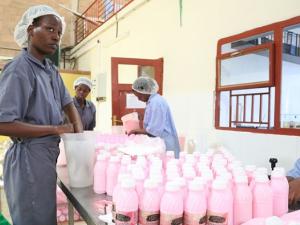
Businesses turn to recycling after ban on single-use plastics
LAST MONTH, importers and retailers were given an ultimatum of three months to stop trading or using single-use plastic materials as the country accelerates efforts to protect the environment.
Manufactures, on the other hand, have up to two years to phase-out production of single-use plastic materials.
With the deadlines to phase out single-use plastics looming, The New Times spoke to manufacturers, traders and policymakers to establish the alternatives available.
According to the Ministry of Environment, the banned plastics include single-use containers, takeaway disposable food wrappers, disposable cutlery, single-use plastic cups and plates, straws, stirrers, balloons, plastic folders and plastic carry bags
Rwanda Environment Management Authority (REMA) has stressed that most single-use plastics have alternatives and those that do not have any will be given waivers.
However, it did not disclose the recommended alternatives.

Workers at Masaka Farm fill in strawberry yogurt. Manufactures, on the other hand, have up to two years to phase-out production of single-use plastic materials
Kigali Marriott Hotel says that, through its global plastics reduction initiative, it started phasing out single-use plastics in 2018.
The global hotel brand says that instead of plastics, it has adopted the use of wooden stirrers and paper straws in addition to using soap dispensers and larger bottles as opposed to small toiletry bottles.
The hotel says that it started to gradually implement “green” practices in its operations so as to give clients time to adjust to the changes.
Instead of using several packed water bottles during events such as conferences, the Hotel encourages the use of bigger water dispensers (20 litres) and glasses, it says.
The Hotel also uses boxes instead of the usual plastic takeaway boxes, it says.
However, these efforts faced challenges locally.
While the hotel can access some of these alternative materials, locally, it still has to import several others, demonstrating weaknesses among domestic manufacturers to come up with innovative solutions.
Alexis Nkundayesu, the Executive Director of Sina Gerald Enterprise, said that their alternative to single use plastics is not glasses.
“We are going to set up a project for recycling plastics. We are trying to mobilise finances for the project and planning for project implementation.” Nkundayesu said.
The company says that it has started to look for potential investors in the project.
Trust industries, too, says that it is exploring the potential use of boxes and recycled plastics.
Michael Johnson Kwizera, a Procurement Officer at Trust Industries, says that; “Right now, our only available alternative is packaging in boxes. We are, however, trying to find manufacturers of environmentally friendly products in Rwanda,”
REMA has issued guidelines under which manufacturers, importers and users of single-use plastics can apply and request for waivers that allow them to use the single-use plastics.
This is provided that there are no other possible alternatives for their single-use plastics.
The waiver application is exclusive to single-use plastics meant for use in medicine, agriculture, waste collection and sanitation and the construction industry.
